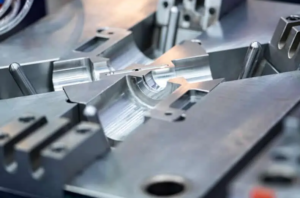Choosing a suitable aluminum die-casting alloy requires evaluating the specific requirements for the expected application, including mechanical and thermal properties, corrosion resistance, and processability. And alloys like A380 are universal because they have a good balance in strength, thermal performance, and cost-effectiveness, making them the preferred choice for many universal applications.
Aluminum die casting is commonly used to produce a large number of metal parts with excellent surface finish and dimensional stability. This process involves injecting molten aluminum alloy into steel molds or molds under high pressure. There are multiple aluminum alloys to choose from, and selecting the appropriate aluminum alloy for a specific application will greatly affect the performance, durability, and cost-effectiveness of the final product.

Mechanical performance
The selection of alloys should be influenced by the mechanical properties required for the final product, including the strength, ductility, and impact resistance of the alloy. Depending on the application, alloys with high tensile strength, yield strength, or a combination of both may be required. If the part needs to bend or undergo other deformations without cracking, then alloys with good ductility should be sought.
Thermal performance
Some applications require alloys with excellent thermal performance, such as high thermal conductivity or heat fatigue resistance. For heat sinks or components that require heat dissipation, alloys with high thermal conductivity are required. Alloys like A380 are known for their excellent thermal performance and are often used in radiators and automotive parts exposed to high temperatures.

Corrosion resistance
The operating environment of the product may require higher corrosion resistance, and certain applications may expose parts to chemicals or reactive substances. In these cases, chemically stable alloys are necessary. Alloys like A360 have excellent corrosion resistance and are suitable for parts exposed to harsh environments.
Processability
The casting process may require further mechanical processing to achieve better surface finish and lower processing costs.
material cost
Consider both material costs and lifecycle costs, including maintenance, durability, and replacement frequency. Some alloys can provide the required performance, but at a higher cost. It is important to balance alloy performance and budget factors to ensure cost-effectiveness.
When selecting alloys, it is necessary to consider the long-term requirements of the finished product and consult die casting professionals when necessary to make the wisest decision.
Thank you for reading our article. If you need related products or have any questions or suggestions about our products, please don’t hesitate to contact us by sending an email, and we will reply to your email as soon as possible.

